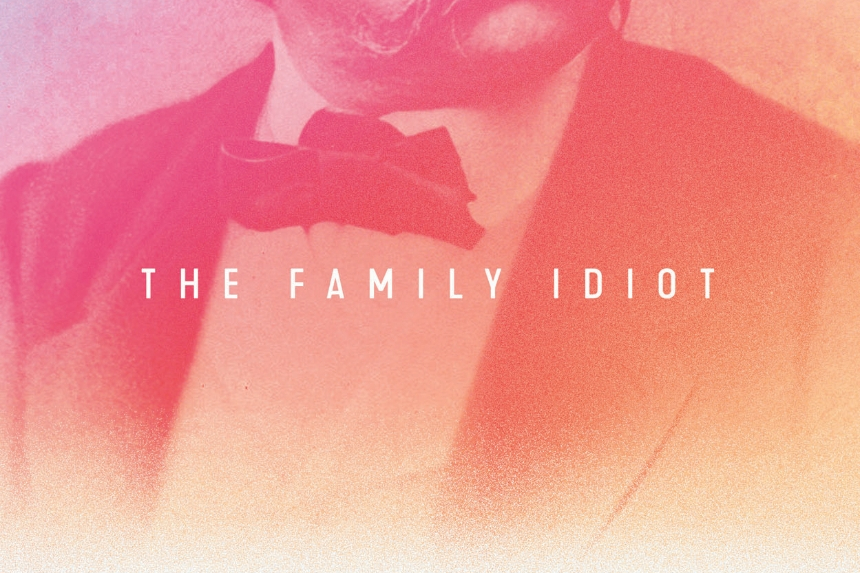
- Free Article: No
- Contents Category: Literary Studies
- Review Article: Yes
- Article Title: Actively passive
- Article Subtitle: Abridging Sartre’s gargantuan opus
- Online Only: No
- Custom Highlight Text:
The Family Idiot (originally published in French in three volumes in 1971–72) is a study of Gustave Flaubert (1821–80). It was published in a fine translation by Carol Cosman, in five volumes, between 1981 and 1994. The Sartre scholar Joseph S. Catalano has produced a skilful, beautifully edited abridgment of this gargantuan opus.
- Featured Image (400px * 250px):

- Alt Tag (Featured Image): Brian Nelson reviews 'The Family Idiot: Gustave Flaubert, 1821–1857, an abridged edition' by Jean-Paul Sartre, translated by Carol Cosman, edited by Joseph S. Catalano,
- Book 1 Title: The Family Idiot
- Book 1 Subtitle: Gustave Flaubert, 1821–1857, an abridged edition
- Book 1 Biblio: University of Chicago Press, US$26 pb, 292 pp
- Book 1 Cover Small (400 x 600):

- Book 1 Cover (800 x 1200):

Gustave was born into a family totally subservient to its ‘feudal’ head, Achille-Cléophas Flaubert, chief surgeon at the Hôtel-Dieu in Rouen. Flaubert’s elder brother Achille was the preferred heir apparent and followed his father into medicine. The favourite of Flaubert’s mother, Caroline Fleuriot, was his younger sister, also named Caroline. Born too late to be the favourite son and of the wrong sex to gain his mother’s affection, Gustave was fated to feel unwanted. As a boy he was allegedly a slow reader and given to losing himself in daydreams. His father, disappointed at his son’s backwardness, crushed him with sarcasm. He was made to feel ‘the family idiot’.
Sartre infers that Flaubert’s backwardness and ‘stupors’ reflected a defensive withdrawal from an inhospitable world. Made passive by paternal rejection and maternal indifference, he was unable to develop any positive sense of identity. His cataleptic seizure at the age of twenty-three on the road to Pont-l’Évêque was the last stage of a process that began at birth. Sartre reads this seizure as a ‘false death’, releasing Flaubert from the demands of a bourgeois career and enabling him to become ‘actively passive’ – to choose alienation from the ‘real’ world through the writer’s vocation. Flaubert’s alienation thus became the basis for a new art of impersonality, a narrative style in which there is no overt narrator but in which meaning is produced by the manipulation of structural elements within the text. The author vanishes into the work of art, which becomes an autonomous anti-world.
Flaubert’s personal neurosis corresponds, according to Sartre, to the ‘objective neurosis’ of French society at the time. Unable, as a child of a now reactionary bourgeoisie, to emulate the Romantic assertion of self of the previous generation, Flaubert adopted an ironic stance and showed in his fiction the vanity of Romantic ideals and aspirations. This pessimistic realism provided ideological support for the bourgeoisie, who, wishing to rationalise their newly acquired economic dominance, needed to promote the values of practicality, hard work, and self-help. Flaubert’s attempt both to abandon and ironically subvert bourgeois society thus led him, paradoxically, into secret complicity with the very class he hated.
Sartre mixes Marxist analysis of social background, and Freudian analysis of personality, with large doses of imaginative hypothesis. His presentation of Flaubert is avowedly novelistic; facts are invented, along with whole scenes and dialogues, for the purposes of his argument. The main problem with The Family Idiot, however, is not its tendentious, fictionalised nature, but the fact that it is incomplete. Sartre stops in 1857. He does not consider Sentimental Education, the novel of 1869 which Flaubert regarded as his masterpiece. In this novel Flaubert depicts his generation’s experience of the revolution of 1848 and the aftermath of betrayal and disillusionment ending with Louis-Napoleon’s coup d’état in December 1851. Notwithstanding Flaubert’s aestheticism, the novel offers an acute analysis of political acts and ideas. As Peter Brooks has shown in his superb Flaubert in the Ruins of Paris (2017), Sentimental Education gives the lie to the image of Flaubert as an ivory-tower artist unable to see humanity in social and historical terms. Sartre blamed Flaubert’s ironic detachment – that is, the non-commitment he purportedly embodied – for the bloody suppression of the Paris Commune of 1871; Flaubert, on the other hand, blamed the Commune on a general failure to understand Sentimental Education – that is, a failure to learn from the experience of his own generation, as represented in his novel.
After the disastrous military defeat of the French at the hands of Prussia in December 1870, and the siege throughout that winter of a Paris on the verge of starvation, the city rose in revolt. A revolutionary government declared Paris an autonomous Commune. The new Government of National Defence saw the Commune as a threat to the entire social order and determined to crush it. Government troops forced their way into the city and reclaimed it with indiscriminate savagery. By the end of the so-called ‘Bloody Week’ in May 1871, Paris lay in smoking ruins. Some 25,000 Parisians, most of them workers, had been killed.
We circle back, ultimately, to the question of empathy. By the 1970s, Sartre had lost much of his influence. His political activities had gone virtually nowhere. Had his own work, he wondered, made any greater impact on public life than that of the uncommitted Flaubert? There are grounds for regarding The Family Idiot as being obliquely autobiographical, almost self-mocking, reflecting Sartre’s sense that Flaubert’s ‘false situation’ as a writer in a bourgeois society was similar to his own, mirroring his own position as a public writer who, though committed to revolutionary action, remained an essentially marginal figure relegated (as the 3,000 pages of the unabridged Family Idiot indicate) to endless word-spinning.


Comments powered by CComment